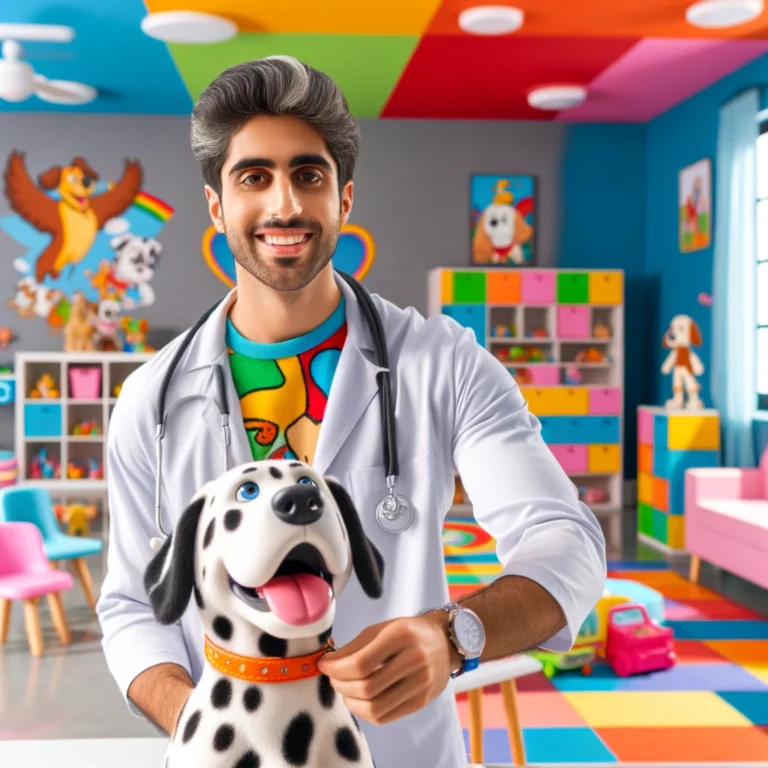how the prevention it’s important before the dog health at risk
Prevention is always better than treatment when it comes to your dog’s health. By taking proactive measures to prevent health risks, you can ensure that your furry friend stays healthy and happy. In this article, we will explore the importance of preventive care for dogs and provide valuable tips for keeping your dog in optimal health. From nutrition and exercise to regular vet check-ups and dental care, we will cover all the essential aspects of preventive care. Read on to discover how you can protect your dog’s well-being and avoid unnecessary health issues.
Key Takeaways
- Monthly preventatives, such as flea and tick treatments and heartworm medication, are crucial for protecting your dog from health risks.
- Regular vet check-ups and vaccinations are essential for maintaining your dog’s overall well-being.
- Proper nutrition and exercise play a significant role in preventive care for dogs.
- Maintaining good dental hygiene is important for your dog’s overall health.
- Preventing parasites, such as fleas, ticks, and worms, is vital for your dog’s well-being.
Why Prevention is Key

Understanding the Importance of Preventive Care
Regular vet check-ups and preventive care are crucial for maintaining your dog’s health. By scheduling wellness visits, you can proactively monitor your dog’s well-being and ensure they receive the essential care they need. These visits include important vaccinations and parasite prevention measures. It’s also important to keep your dog socialized by exposing them to different environments, arranging playdates, and taking them to dog parks. This helps them develop proper behavior and communication skills with other dogs and humans.
Common Health Risks for Dogs
When it comes to the health of our furry friends, there are certain risks that we need to be aware of. While most dogs may only experience mild disease, there are some dogs that are at a higher risk of severe respiratory disease or even death. These high-risk dogs include older dogs, very young puppies, dogs with pre-existing heart or lung disease, dogs with compromised immune systems, and brachycephalic breeds like bulldogs. If your dog falls into any of these categories, it’s important to take extra precautions to keep them healthy.
One important control measure is to reduce the overall number of dog contacts, especially with groups of dogs of unknown health status. The more dogs your dog encounters, the greater the risk of exposure to pathogens. So, it’s a good idea to limit your dog’s contact with random groups of dogs at off-leash parks and instead opt for a small consistent group of known dogs at a daycare or playgroup.
In addition to reducing exposure, vaccination is also crucial for preventing severe respiratory disease. Talk to your veterinarian about respiratory disease vaccines and make sure your dog is up to date with their vaccinations. If your dog does get sick, it’s important to seek veterinary care as soon as possible. Remember, it’s better to be cautious and proactive when it comes to your dog’s health.
So, let’s keep our furry friends safe and healthy by being aware of the common health risks they may face and taking the necessary steps to prevent them.
The Cost of Ignoring Prevention
When it comes to the health of our dogs, ignoring preventive care can have serious consequences. Not only can it lead to costly medical bills, but it can also put our furry friends at risk of developing various health issues. By neglecting preventive measures, we are essentially gambling with our dogs’ well-being. It’s like playing a game of chance where the odds are stacked against us. And let’s face it, nobody likes to lose when it comes to their beloved pets. So why take the risk?
To illustrate the importance of prevention, let’s take a look at some numbers:
| Preventive Measure | Cost | Benefit |
|---|---|---|
| Regular Vet Check-ups | $200 per year | Early detection of health problems |
| Vaccinations | $50 per year | Protection against infectious diseases |
| Dental Care | $100 per year | Prevention of dental issues |
As you can see, the cost of preventive care is relatively low compared to the potential benefits it offers. It’s a small price to pay for the peace of mind knowing that we are doing everything we can to keep our dogs healthy and happy.
Tip: Don’t wait until it’s too late. Start prioritizing preventive care for your dog today!
Simple Steps for Keeping Your Dog Healthy
Make sure your dogs take their monthly preventatives to protect them from various health risks. Monthly preventatives, such as flea and tick treatments and heartworm medication, play a vital role in safeguarding your dog’s well-being. Fleas and ticks can cause discomfort and transmit diseases, while heartworms can be life-threatening. Consult with your veterinarian to determine the appropriate preventatives for your dog.
Additionally, provide your dog with a balanced diet and regular exercise. A nutritious diet and exercise routine are essential for maintaining your dog’s overall health and weight. Avoid overfeeding and opt for high-quality dog food that meets their nutritional needs. Engage in daily physical activities such as walks, playtime, or interactive games to keep your dog active and mentally stimulated.
Lastly, prioritize regular vet check-ups. Regular visits to the vet are crucial for preventive care and early detection of any health issues. Your vet will perform a thorough examination, administer necessary vaccinations, and recommend preventive medications. Building a good relationship with your vet ensures that your dog receives the best possible care.
Remember, by following these simple steps, you can keep your dog healthy and happy for years to come!
Nutrition and Exercise

Feeding Your Dog a Balanced Diet
When it comes to keeping our dogs healthy, one of the most important factors is their diet. Providing a balanced diet is essential for their overall well-being. It’s not just about what they eat, but also how much they eat. Monitoring their weight is crucial to prevent health issues like joint problems, heart disease, and diabetes. We should ensure that they are not overeating or being fed excessive treats. Along with a balanced diet, regular exercise is important to help them maintain a healthy weight. If you’re unsure about your dog’s ideal weight or need guidance on their diet, consult with your veterinarian for personalized advice.
The Role of Exercise in Preventive Care
Exercise is essential for maintaining good physical and mental health. Regular physical activity has numerous benefits for disease prevention and overall well-being. It helps maintain a healthy weight, improves cardiovascular fitness, and strengthens muscles and joints. Exercise also provides mental stimulation, reduces boredom, and promotes good behavior. Engaging in daily physical activity with your dog is not only beneficial for their health but also strengthens the bond between you. So, grab a leash, head outdoors, and enjoy the countless benefits of exercising with your dog every day.
Avoiding Common Nutritional Mistakes
To reduce the risk of dietary indiscretion, it’s important to monitor your dog’s diet and avoid sudden changes. Be cautious about feeding them human foods, as some can be toxic to dogs. Routine veterinary check-ups can help identify and manage underlying health issues before they become serious. Additionally, keeping a clean environment and preventing access to garbage and toxic substances can further reduce the risk of dietary indiscretion.
Fun Ways to Keep Your Dog Active
Exercise is not only beneficial for humans but also for our furry companions. Engaging in daily physical activity with your dog is essential for their overall health and well-being. Exercise helps to maintain a healthy weight, improve cardiovascular fitness, and strengthen muscles and joints. It also aids in mental stimulation, reducing boredom, and promoting good behavior. Additionally, exercise provides an opportunity for bonding and quality time with your dog, strengthening the bond between us and enhancing the trust and companionship we share. So, grab a leash, head outdoors, and enjoy the countless benefits of exercising with your dog every day.
Here are some fun ways to keep your dog active:
- Play fetch in the park
- Go for a hike in the woods
- Take a swim at the beach
- Try out agility training
- Set up an obstacle course in your backyard
Remember, keeping your dog active not only keeps them physically healthy but also mentally stimulated and happy!
Regular Vet Check-ups

The Benefits of Regular Vet Visits
Scheduling regular wellness visits for your dog is a key aspect of keeping them healthy. These visits provide an opportunity for our veterinarian to assess your dog’s overall health, identify any potential issues early on, and provide necessary preventive care. During a wellness visit, our veterinarian will perform a comprehensive physical examination, checking your dog’s weight, heart rate, temperature, and overall body condition. They may also conduct additional tests, such as blood work or fecal examinations, to screen for any underlying health concerns. Wellness visits also include important vaccinations and parasite prevention measures. By scheduling regular wellness visits, we can proactively monitor your dog’s health and ensure that they receive the essential care needed to maintain their well-being.
What to Expect During a Check-up
During a wellness visit, your veterinarian will perform a comprehensive physical examination, checking your dog’s weight, heart rate, temperature, and overall body condition. They may also conduct additional tests, such as blood work or fecal examinations, to screen for any underlying health concerns. Wellness visits also include important vaccinations and parasite prevention measures. By scheduling regular wellness visits, you can proactively monitor your dog’s health and ensure that they receive the essential care needed to maintain their well-being.
Keep Them Socialized
When it comes to keeping your dog healthy, socialization plays a vital role. It is crucial for your dog to develop proper behavior and communication skills with other dogs and humans. By exposing them to different environments, arranging playdates, and taking them to dog parks, you can help them become well-rounded and confident.
Regular Veterinary Check-ups
Regular check-ups with your veterinarian are crucial. Vets can often spot signs of skin cancer that owners might miss. They can also provide advice on your dog’s overall health and risk factors for skin cancer.
Biopsy and Diagnosis
If your veterinarian suspects skin cancer, they will likely recommend a biopsy to confirm the diagnosis. Early diagnosis can be the key to successful treatment.
Treatment Options
If skin cancer is detected, treatment options vary depending on the type and stage of cancer. They may include surgery, radiation therapy, chemotherapy, or a combination of these. Your veterinarian will discuss the best course of action for your dog.
Remember, prevention is always better than cure. By taking proactive steps to keep your dog healthy and scheduling regular check-ups, you can ensure their well-being and catch any potential health issues early on.
Vaccinations and Preventive Medications
Consulting with your veterinarian and following their recommended preventative schedule will help you in keeping your dog healthy and protected year-round. Vaccinations are a crucial aspect of keeping your dog healthy. Regularly updating your dog’s vaccinations is essential for their overall well-being. Vaccinations protect your dog from various contagious and potentially life-threatening diseases, such as rabies, distemper, and parvovirus. By ensuring that your dog receives their vaccinations on schedule, you can help strengthen their immune system and prevent the spread of these diseases to other dogs in the community.
Building a Good Relationship with Your Vet
Consulting with your veterinarian and following their recommended preventative schedule will help you in keeping your dog healthy and protected year-round. Regularly updating your dog’s vaccinations is essential for their overall well-being. Vaccinations protect your dog from various contagious and potentially life-threatening diseases, such as rabies, distemper, and parvovirus. By ensuring that your dog receives their vaccinations on schedule, you can help strengthen their immune system and reduce the risk of illness. Additionally, it is important to discuss any concerns or changes in your dog’s behavior or health with your vet. They can provide guidance and advice tailored to your dog’s specific needs. Building a good relationship with your vet is crucial for the well-being of your dog. It allows for open communication, trust, and collaboration in providing the best care possible. Remember, your vet is there to support you and your dog every step of the way.
Dental Care for Dogs

The Importance of Dental Health
Brushing your dog’s teeth is an essential part of keeping your dog healthy. Just like humans, dogs can develop dental issues such as plaque buildup, tartar, and gum disease. Regular brushing helps prevent these problems and promotes good oral hygiene. By removing plaque and tartar, you can reduce the risk of tooth decay and gum inflammation, which can lead to pain and discomfort for your furry friend. Additionally, maintaining clean teeth and fresh breath contributes to your dog’s overall well-being and can prevent other health issues that may arise from poor dental hygiene. It’s important to use a dog-specific toothbrush and toothpaste, as human products can be harmful to dogs. Incorporating teeth brushing into your dog’s routine, along with regular veterinary dental check-ups, will help ensure their dental health and keep them smiling for years to come. Make Sure They Maintain a Healthy Weight Maintaining a healthy weight is another crucial aspect of keeping your dog healthy. Obesity in dogs can lead to a range of health issues, including joint problems, heart disease, and diabetes. It’s important to monitor your dog’s weight and ensure they are getting the right amount of exercise and a balanced diet. Avoid overfeeding and provide them with nutritious food that meets their specific dietary needs. Regular exercise is also important for weight management and overall well-being. Engage in activities that your dog enjoys, such as walks, playtime, or interactive toys. By keeping your dog at a healthy weight, you can reduce the risk of various health problems and improve their quality of life. Socialize Them from an Early Age Socialization plays a vital role in your dog’s development and well-being. It involves exposing them to different people, animals, and environments to help them become comfortable and confident in various situations. Socialization should start from an early age and continue throughout their life. Introduce your dog to new experiences gradually and positively reinforce their behavior. This can include taking them to dog parks, arranging playdates with other dogs, and exposing them to different environments. Socialization not only prevents behavioral issues like aggression and anxiety but also contributes to their overall well-being. Brush Their Teeth Brushing your dog’s teeth is an essential part of keeping your dog healthy. Just like humans, dogs can develop dental issues such as plaque buildup, tartar, and gum disease. Regular brushing helps prevent these problems and promotes good oral hygiene. By removing plaque and tartar, you can reduce the risk of tooth decay and gum inflammation, which can lead to pain and discomfort for your furry friend. Additionally, maintaining clean teeth and fresh breath contributes to your dog’s overall well-being and can prevent other health issues that may arise from poor dental hygiene. It’s important to use a dog-specific toothbrush and toothpaste, as human products can be harmful to dogs. Incorporating teeth brushing into your dog’s routine, along with regular veterinary dental check-ups, will help ensure their dental health and keep them smiling for years to come.
Brushing Your Dog’s Teeth
Brushing your dog’s teeth is an essential part of keeping your dog healthy. Just like humans, dogs can develop dental issues such as plaque buildup, tartar, and gum disease. Regular brushing helps prevent these problems and promotes good oral hygiene. By removing plaque and tartar, you can reduce the risk of tooth decay and gum inflammation, which can lead to pain and discomfort for your furry friend. Additionally, maintaining clean teeth and fresh breath contributes to your dog’s overall well-being and can prevent other health issues that may arise from poor dental hygiene. It’s important to use a dog-specific toothbrush and toothpaste, as human products can be harmful to dogs. Incorporating teeth brushing into your dog’s routine, along with regular veterinary dental check-ups, will help ensure their dental health and keep them smiling for years to come.
Choosing the Right Dental Products
When it comes to dental care for dogs, using the right products is essential. Poor dental hygiene can lead to a range of issues such as plaque buildup, tartar, and gum disease. Regular brushing with a dog-specific toothbrush and toothpaste is key to preventing these problems and promoting good oral hygiene. By removing plaque and tartar, you can reduce the risk of tooth decay and gum inflammation, which can cause pain and discomfort for your furry friend.
Here are some tips for choosing the right dental products:
- Use a dog-specific toothbrush and toothpaste to avoid any harm from human products.
- Incorporate teeth brushing into your dog’s routine along with regular veterinary dental check-ups.
Remember, maintaining clean teeth and fresh breath contributes to your dog’s overall well-being and can prevent other health issues that may arise from poor dental hygiene. So, make sure to choose the right dental products and keep your dog smiling for years to come!
Signs of Dental Problems in Dogs
Dental care is an essential part of keeping your dog healthy. Just like humans, dogs can develop dental issues such as plaque buildup, tartar, and gum disease. Regular brushing helps prevent these problems and promotes good oral hygiene. By removing plaque and tartar, you can reduce the risk of tooth decay and gum inflammation, which can lead to pain and discomfort for your furry friend. Additionally, maintaining clean teeth and fresh breath contributes to your dog’s overall well-being and can prevent other health issues that may arise from poor dental hygiene. It’s important to use a dog-specific toothbrush and toothpaste, as human products can be harmful to dogs. Incorporating teeth brushing into your dog’s routine, along with regular veterinary dental check-ups, will help ensure their dental health and keep them smiling for years to come. Make sure they maintain a healthy weight as obesity in dogs can lead to a range of health issues, including joint problems, heart disease, and diabetes.
Parasite Prevention

Understanding Common Parasites
Parasites are a common problem for dogs, and it’s important to understand the different types and how to prevent them. There are two main types of parasites that can affect dogs: demodectic and sarcoptic mange. Both types can cause itching, hair loss, and infections. Mange is a skin disease caused by mites that live under the skin or in hair follicles. It can be very unpleasant for dogs and should be treated promptly.
In addition to mange, dogs can also be affected by fleas and ticks. Fleas can cause itching and discomfort for dogs, and they can also transmit diseases. Ticks, on the other hand, can carry diseases such as Lyme disease and can be difficult to spot on your dog’s fur. It’s important to regularly check your dog for fleas and ticks and take preventive measures to keep them at bay.
One important aspect of parasite prevention is keeping your home environment free of parasites. Flea and tick preventatives, such as Sentinel, can help ensure that fleas’ eggs don’t hatch and keep your home parasite-free. It’s also important to be mindful when your dog visits other people’s homes, as they can easily pick up fleas and bring them back to your home. Taking preventive measures, such as regular grooming and using flea and tick preventatives, can help protect your dog from parasites and keep them healthy.
Flea and Tick Prevention
Flea and tick treatments, as well as heartworm medication, play a vital role in safeguarding our dog’s well-being. These pesky insects can cause discomfort and transmit diseases, while heartworms can be life-threatening. By administering these preventatives regularly, we can effectively prevent infestations and keep our dog safe from these potential dangers. Remember, prevention is always better than treatment when it comes to our dog’s health. Consulting with our veterinarian and following their recommended preventative schedule will help us in keeping our dog healthy and protected.
Heartworm Prevention
Heartworm prevention is crucial for the health and well-being of our dogs. Preventatives, such as flea and tick treatments and heartworm medication, play a vital role in safeguarding your dog’s well-being. Fleas and ticks can cause discomfort and transmit diseases, while heartworms can be life-threatening. By administering these preventatives regularly, we can effectively prevent infestations and keep our dogs safe from these potential dangers. Remember, prevention is always better than treatment when it comes to our dog’s health. Consulting with our veterinarian and following their recommended preventative schedule will help us in keeping our dogs healthy and protected.
Dealing with Worm Infestations
Dealing with worm infestations can be a challenging and unpleasant experience. It’s important to take immediate action to protect the health of your dog and your family. Prevention is key in avoiding worm infestations, as some intestinal parasites can spread to humans. Here are a few steps you can take:
- Regularly deworm your dog using veterinarian-prescribed medications.
- Keep your dog’s living area clean and free of feces, as worms can be transmitted through contaminated soil.
- Practice good hygiene by washing your hands thoroughly after handling your dog or cleaning up after them.
If you suspect that your dog has a worm infestation, it’s crucial to consult with your veterinarian for proper diagnosis and treatment. Remember, early detection and intervention are essential in preventing the spread of worms and ensuring the well-being of your dog and your family.
In Conclusion
Prevention is key when it comes to keeping your dog healthy and happy. By ensuring they take their monthly preventatives and stay updated on their vaccinations, you can protect them from various health risks. Regular wellness visits and socialization are also important for their overall well-being. Remember, your dog’s health is in your hands, so prioritize their care and shower them with love and attention. With these practices in place, you can ensure that your furry companion stays healthy and thriving throughout the year.
Frequently Asked Questions
Why is prevention important for dog health?
Prevention is important for dog health because it helps to identify and address potential health risks before they become serious problems. By taking preventive measures, such as regular vet check-ups and parasite prevention, dog owners can ensure their pets stay healthy and avoid costly treatments.
What are some common health risks for dogs?
Some common health risks for dogs include fleas and ticks, heartworms, dental problems, and worm infestations. These can cause discomfort, illness, and even life-threatening conditions if left untreated.
How much does ignoring prevention cost?
Ignoring prevention can cost dog owners a significant amount of money in the long run. Treatments for preventable health issues, such as heartworm disease or dental problems, can be expensive. Additionally, the emotional toll of seeing a beloved pet suffer could be devastating.
What are simple steps for keeping your dog healthy?
Some simple steps for keeping your dog healthy include providing a balanced diet, regular exercise, proper dental care, and preventive medications. It is also important to schedule regular vet check-ups and maintain a good relationship with your vet.
How often should I brush my dog’s teeth?
It is recommended to brush your dog’s teeth at least 2-3 times a week. Regular brushing helps prevent plaque buildup and maintain good dental health for your dog.
What are the signs of dental problems in dogs?
Signs of dental problems in dogs include bad breath, swollen or bleeding gums, difficulty eating, loose or missing teeth, and excessive drooling. If you notice any of these signs, it is important to consult with your veterinarian.






